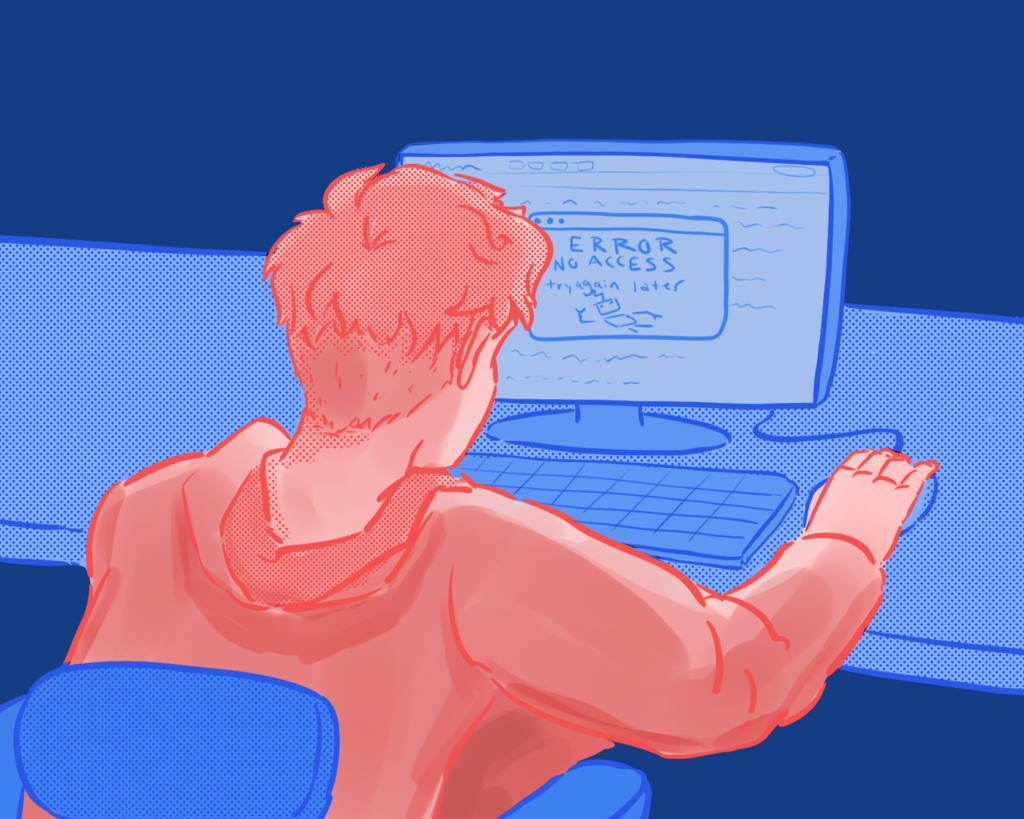ABIGAIL JACOBSON
Asst. News Editor

The duo of using your phone to sign into Google on your laptop may no longer be dynamic.
Something new is coming to Fredonia which changes almost everything.
This upcoming semester, Fredonia will be migrating from Google’s software services to Microsoft.
The question is, why?
Michel Kouadio, Fredonia’s chief information officer (CIO), provided a reason for the migration.
“The core problem [comes] from the fact that our Information Technology (IT) infrastructure is siloed,” said Kouadio.
Migrating from Google to Microsoft is not the main goal.
The migration is a step in the direction of the actual goal, where Fredonia wants to build a new infrastructure and to also enhance collaboration between Fredonia students and faculty.
“[The] main goal is to build that kind of … IT infrastructure that is well-integrated,” said Kouadio. “[And also] allows collaboration that [will allow] us to communicate better.”
According to Kouadio, to achieve this main goal, Fredonia must switch to Microsoft.
“We need a platform that allows us to interact,” he said.
That platform is called SharePoint.
SharePoint is an application where users can share, edit, organize and store documents. The application also allows users to plan events on a calendar and help manage your team’s or your own work.
As of this semester, Fredonia students and faculty tend to communicate via email.
Kouadio believes that some students and faculty find email somewhat limiting.
“We want to make sure we’re using a system that [is] purposefully built for collaboration and also brings … tools that allow more collaboration and more interaction,” said Kouadio.
Another reason for migrating is that Fredonia is not fully integrated into our system.
“We [are] trying to solve and … have a more cohesive and coherent infrastructure,” said Kouadio.
According to Kouadio, our system is made up of different areas, which creates problems and repetitive tasks that can bring a lot of inefficiency and delays, as well as waste time and money.
Kouadio knows this decision can bring different views.
“I expect to hear different voices,” he said. “There’ll be people with very different [opinions].”
Jennifer Hildebrand, the director of curriculum, has a different perspective of this change.
When Hildebrand first heard of the switch, it was merely a rumor. Now that the change is official, she has her concerns.
“I felt confused, frustrated and very worried,” said Hildebrand. “[A ton] of the work that I do as the director of curriculum relies on Google Docs, Sheets, Drive, etc.”
All of Hildebrand’s documents, ranging from new classes, new majors and minors and more are shared and stored on Google.
Fredonia had also just recently switched from OnCourse to FredLearn this past fall semester.
For the most part, students and faculty believe that the switch was tough to get used to, and are still adjusting.
“To have another big shift looming … created a sense of helplessness and exhaustion,” said Hildebrand.
Some of the concerns voiced by faculty members include who and when would they teach them this new system and how the students will be affected by this decision.
Another concern, according to Hildebrand, was about information privacy.
“Questions and concerns have been raised about information privacy as we [were introduced to] a form of automated, artificial intelligence to share information with students,” said Hildebrand.
Hildebrand can see Kouadio’s reasoning behind this switch, however, she has one big concern.
“My concern isn’t about whether we should do this, but about [how] we do it,” said Hildebrand.
Hildebrand’s opinion is more complicated than ‘to switch or to not switch.’
She believes we must take a route where we educate the students and faculty, while also providing a smooth transition into this change.
“We have a responsibility to our students, faculty and staff to make this big project as seamless, transparent and pain-free as possible,” said Hildebrand. “I believe we all want to do what’s best for our students, both current and future, and our employees.”
According to Kouadio, his role isn’t only to manage the technology Fredonia uses.
“[My role] is to deliver services that enhance student learning, promote innovative teaching and can [also] support knowledge discovery,” he said.
While this change will soon be upon us and can bring different opinions, Kouadio believes this will be a better infrastructure for students to collaborate and communicate.
“Students are a core component,” he said. “We want to make sure when students come to Fredonia, we find an environment that is really innovative and we know [the] learning outcome could be one of the best that you can get.”
